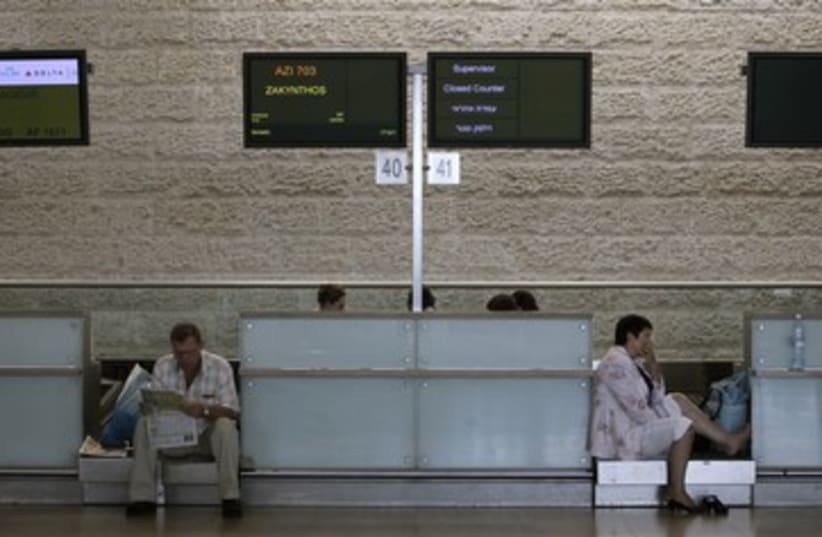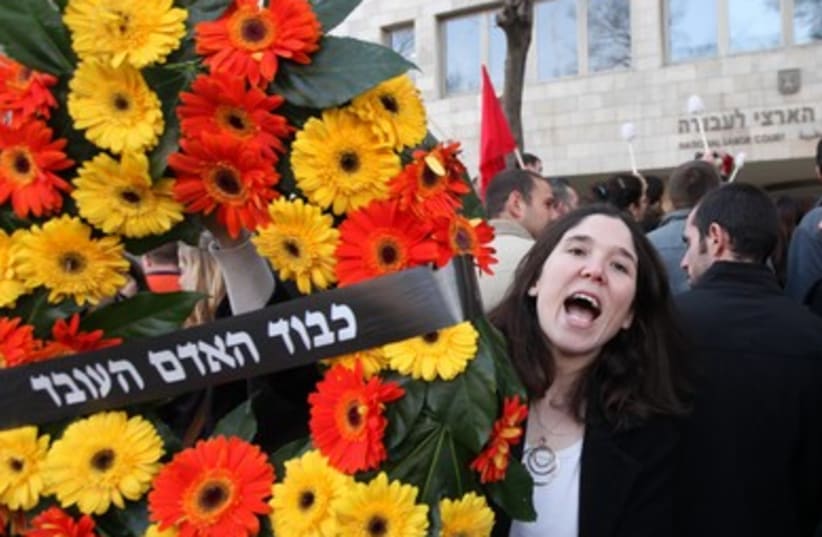
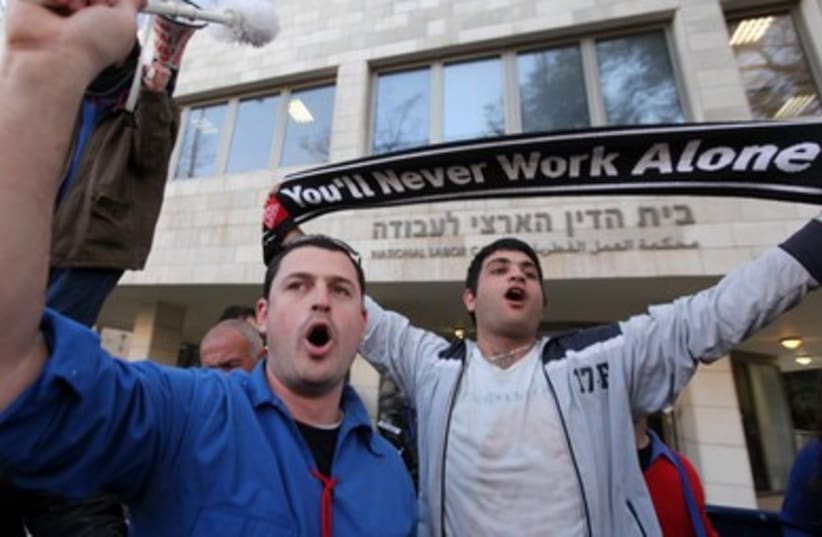
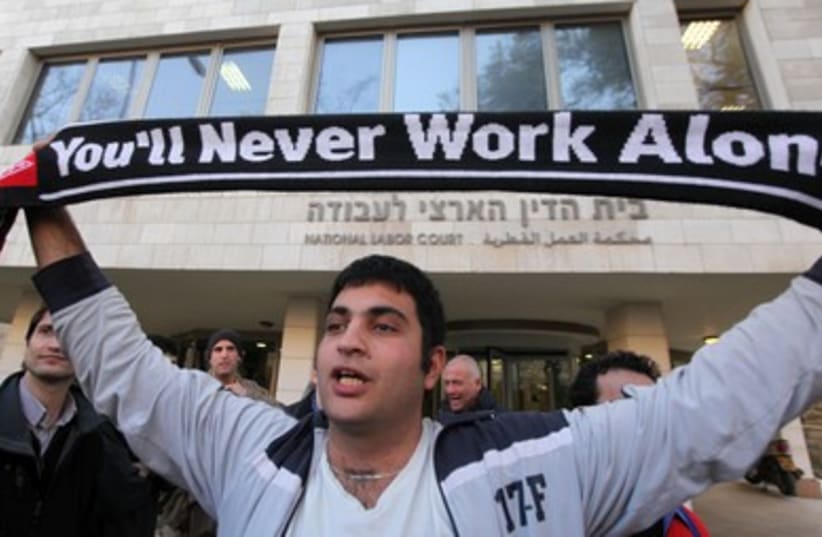
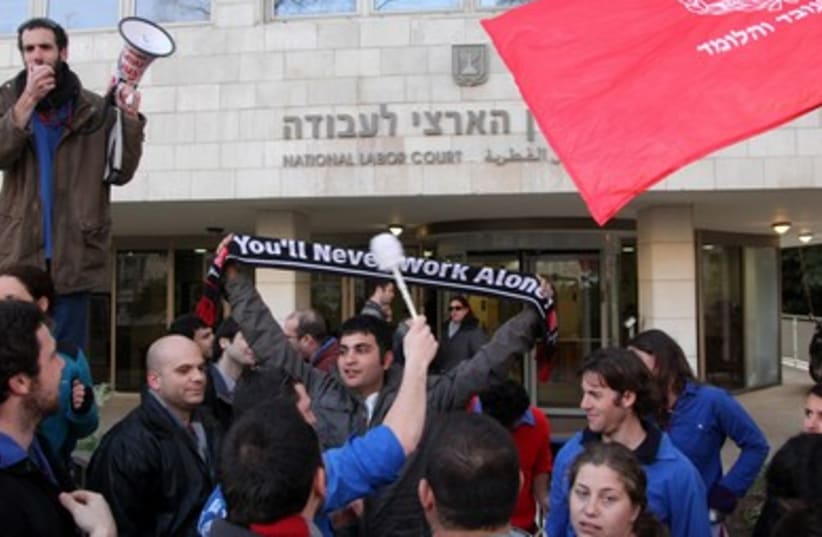
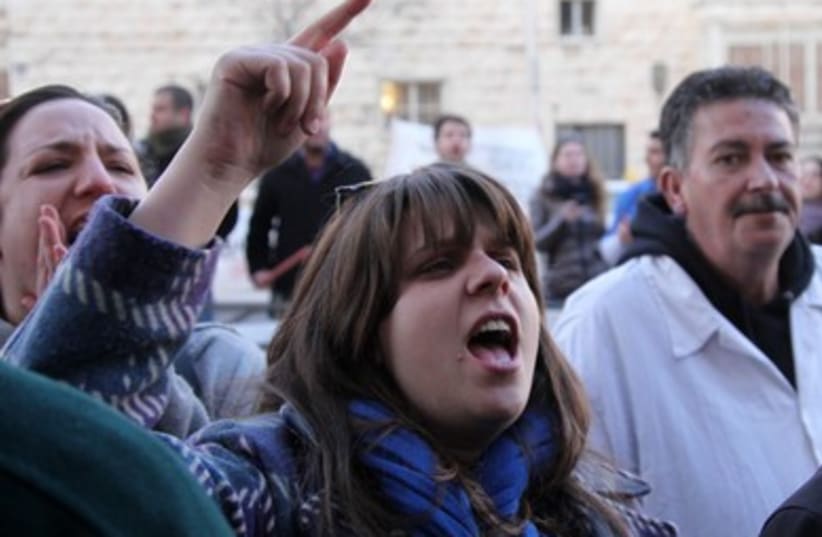
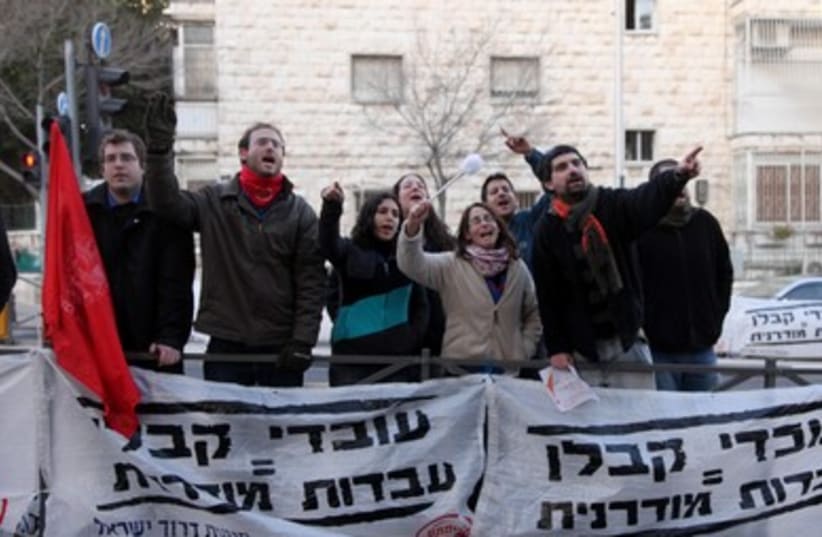
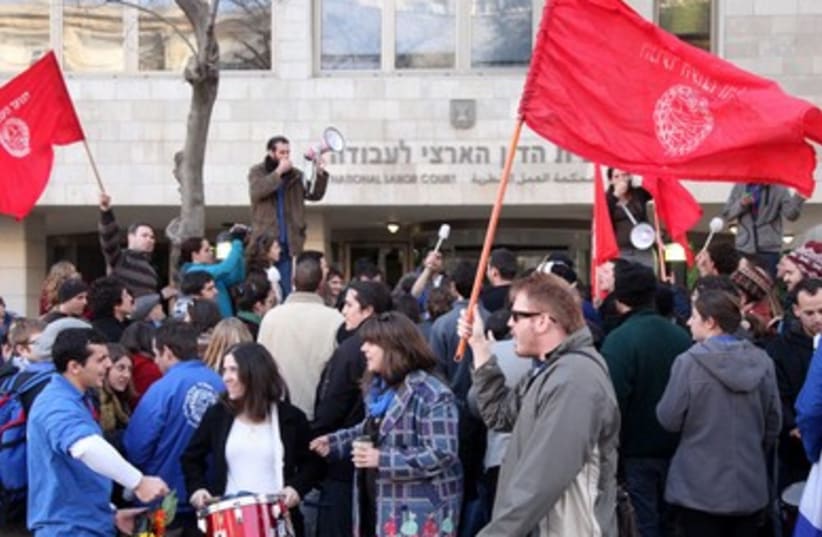
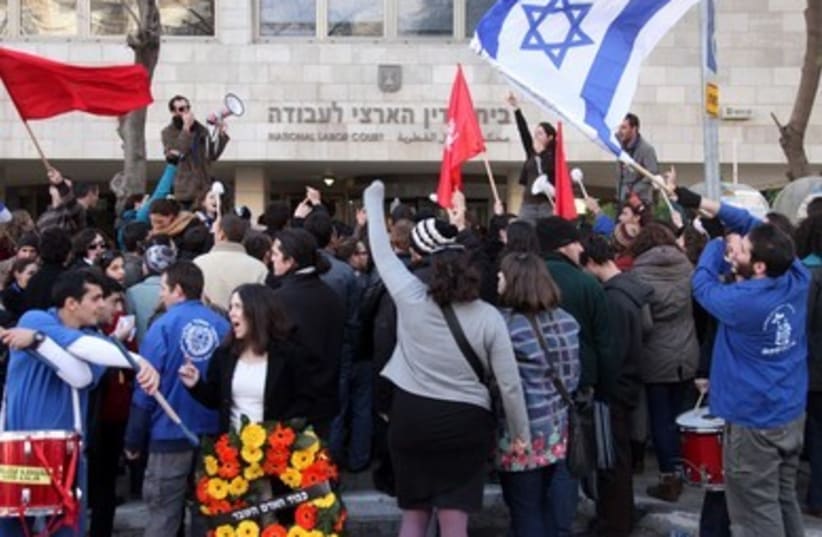

The two sides were ordered to report by telephone to the National Labor Court president by 1 a.m. Thursday. After receiving the report on the state of talks between the two sides, the court was expected to rule whether to allow the strike to continue and if so, under which conditions, a Finance Ministry spokesman said.An open-ended general strike began Wednesday at 6 a.m after all-night negotiations between the Histadrut Labor Federation and the Treasury over the employment status of contract workers failed to produce a breakthrough. Histadrut chairman Ofer Eini said that the strike could end with the intervention of Prime Minister Binyamin Netanyahu.The Finance Ministry raised hope early Wednesday morning that a strike could be averted by offering an additional NIS 200 million for a budget aimed at improving the conditions of contract workers. Although Eini said that the offer represented progress, he did not say if he had accepted it.Click here for a full list of the services that will be suspended as part of the general strike.Eini on Wednesday called on Netanyahu to endorse a deal reached between the Histadrut and the Federation of Israeli Economic Organizations.Given Finance Minister Yuval Steinitz's determined opposition to adding his name to the agreement with Federation of Israeli Economic Organizations chairman Shraga Brosh, Eini said, Netanyahu should give an "in principal" endorsement to the agreement ."If the PM agrees, the strike will end," Eini said.The Brosh agreement includes a partial transfer of cleaning workers to direct employment, transfer of contract workers whose jobs mirror directly employed workers into direct employment and giving full worker's rights to those who remain as contract workers.The Finance Ministry said in a statement that progress resulted from its offer to add "hundreds of millions of shekels to improve the wages and conditions of [contract] workers.""Unfortunately, the Histadrut is entrenched in its position that is likely to drag Israel into an unnecessary strike that will cost the economy billions of shekels," the statement said.The issues at hand, it added, are complex and require in-depth discussions "in order to strike the right balance between improving wages and conditions for workers and maintaining the Israeli economy." Staff at Ben-Gurion Airport was striking between 6 a.m. and noon. Train services were stopped completely, but Egged and Dan buses continued to operate.The economy will lose NIS 400 million each week that the strike is allowed to continue, according to the Federation of Israeli Chambers of Commerce (FICC).National Labor Court President Nili Arad lifted an injunction against the strike last week, saying there had been no choice but to declare that negotiations had reached a deadlock. Arad first ordered the Histadrut, Treasury and employers to conduct talks after allowing the labor federation to hold a four-hour strike on November 7. Nadav Shemer contributed to this report.
